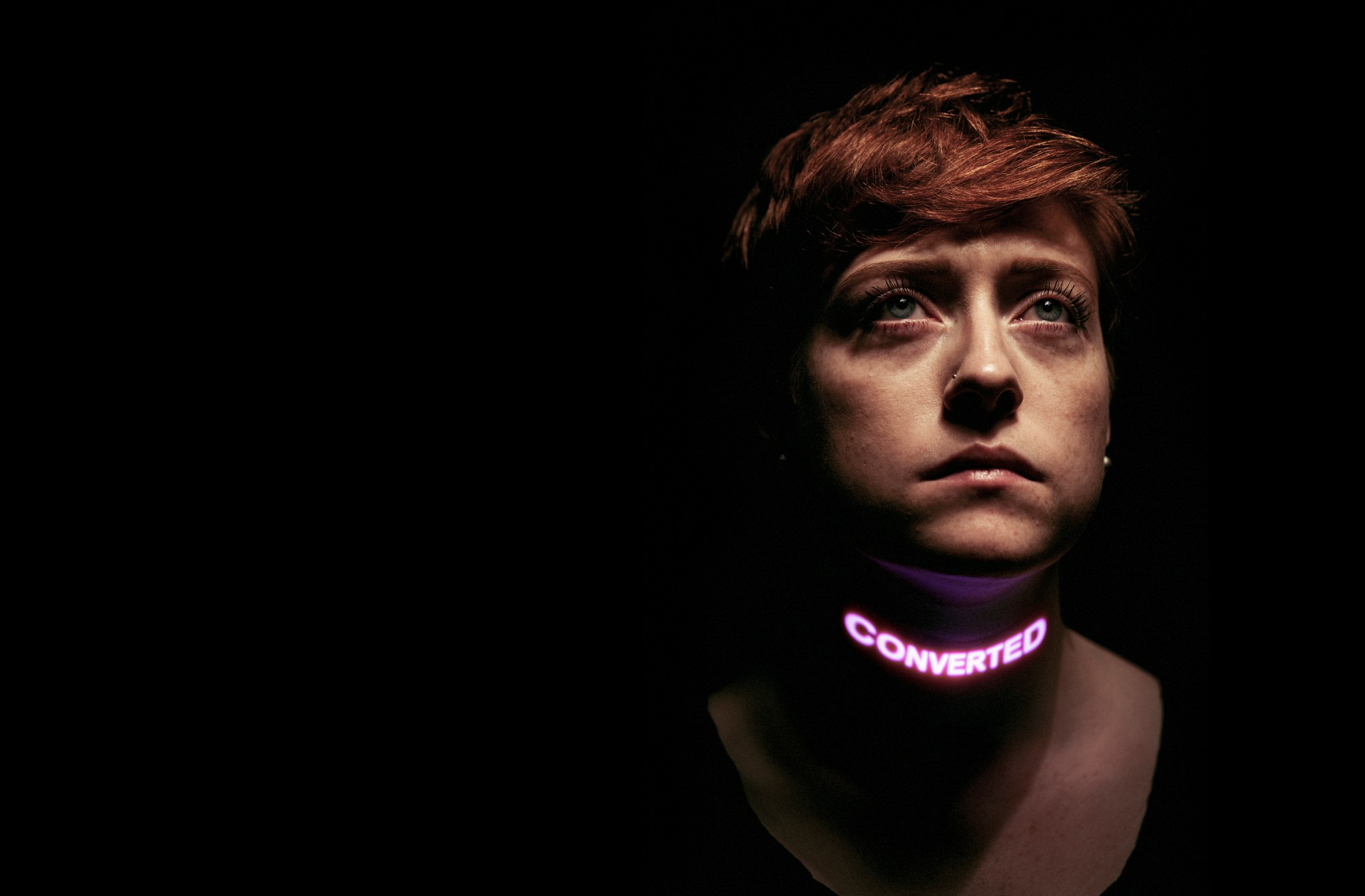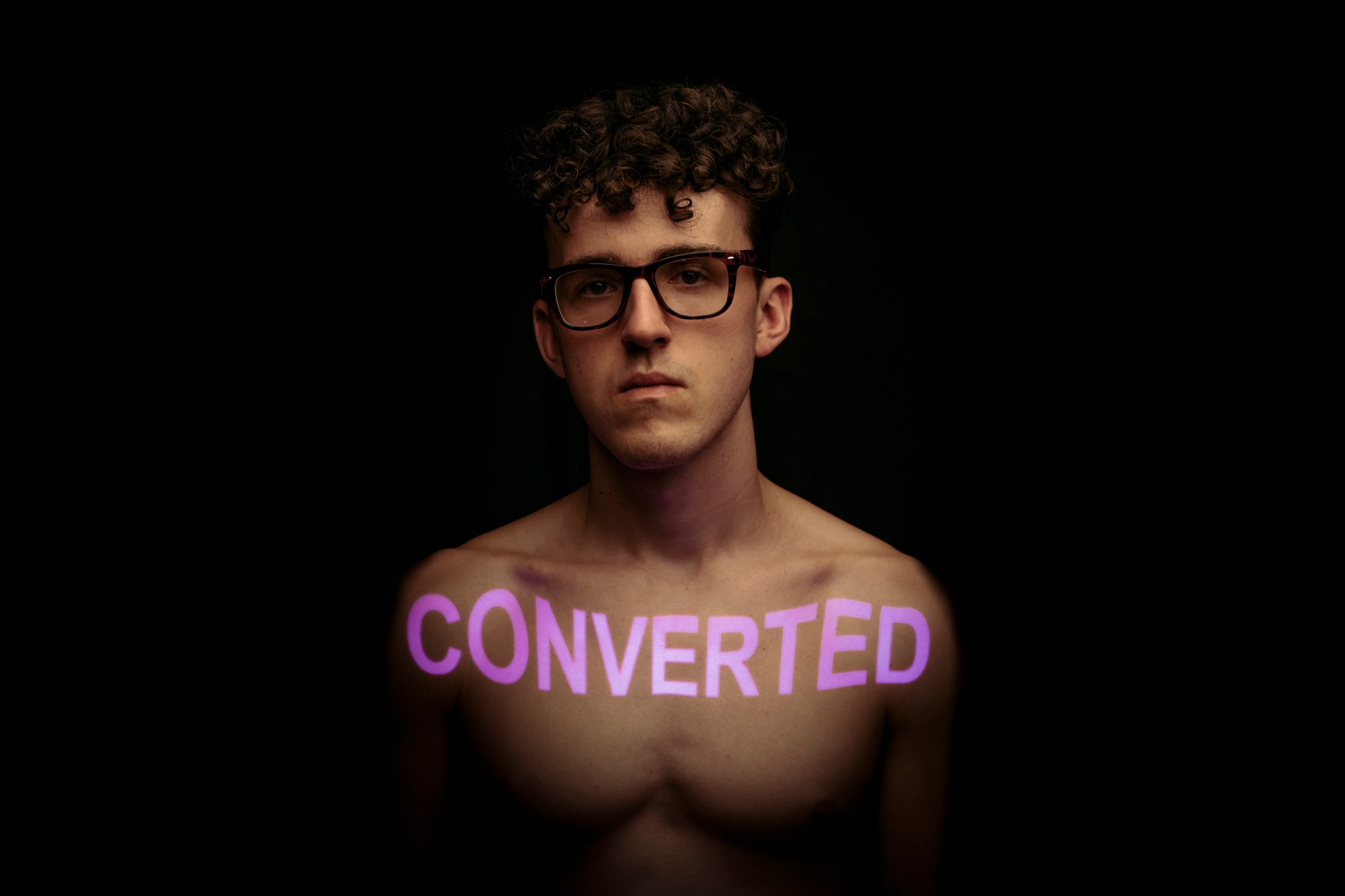Last week, Northern Ireland welcomed in equal marriage after a long struggle. Unusually, Westminster decided to step in and legislate for it where the region’s all-but-permanently closed local Stormont parliament had repeatedly failed. Despite popular support for equality, the region’s largest party, the Christian fundamentalist DUP, consistently blocked it. There is now equal marriage in every part of Ireland – the Republic passed it by referendum in 2015.
Over the years, equal marriage has become a temperature check for a country’s progress on LGBTQ rights – the sort of thing that rich gays Google before they book citybreak flights; a crude and quick way of telling where a country stands on queer people. But it takes more than marriage to remake the relationship between queer people and the state – the scars of mistreatment run deeper, and we should use these moments of change as a time to reflect on them.
Converted is one documentary doing justice to this history. A short now available on Irish state broadcaster RTÉ, it looks at Ireland’s history of so-called “conversion therapy” – the practice of attempted therapies to “reverse” someone’s sexual orientation or gender identity. Nearly every professional body on the planet says this practice doesn’t work. The General Medical Council thinks it’s not just ineffective, but likely harmful. By weaving fraught personal stories together with the voices of those who still vouch for the practice, this Suzie Keegan-directed film gives a human voice to that harm.
The documentary gives a broad sweep to the long history of conversion ‘therapy’. We see famous gay activist and Irish Senator David Norris lambast the old practice of ‘aversion therapy’, which involved showing men pornographic pictures of the same gender, and administering an electric shock if they became aroused. Shockingly, recent investigations revealed that this ‘therapy’ was administered to students of Queen’s University, in Belfast well into the 70s. Such revelations are shocking not just because they expose the suffering of the past, but because they bring us to think about what sort of present we’ve inherited. And what we’ve inherited from these barbaric practices is a spurious, toxic network of ‘conversion therapy’ advocates who believe that sexual orientation can be fixed, and discipline their queer victims into thinking so too.
Pádraig Ó Tuama is one of the survivors of that network. He went through conversion therapy in the early nineties. He was 18 years old, having just moved to Dublin, and joined a prayer group. In the documentary, his eyes brim with tears as he recounts said group’s persistent threats of sin, loneliness and AIDS, as well as the humiliations which led whole rooms of members to pray over him. “Those were such formative times for me. That sort of thing doesn’t leave you when you’re 22.”
Growing up gay in Ireland, I was no stranger to the agony of internalised homophobia, nor to the practice of conversion ‘therapy’ – in 2008, Northern Ireland’s First Lady was recommending it on the radio. And yet, only talking to Pádraig did I grasp what really made people access it. “What brought me there is that I came from a strong faith background in a community I loved,” he says. “And the thing about faith communities in this world is that, when it works, it’s amazing. If something bad happens, someone comes down with a casserole. They’re your family without being your actual family. Then, if you’re someone like me, you find out that there are conditions attached, and the love isn’t unconditional.”

The cruelty then seems deeper still: this ineffective and traumatic practice does not just target queer people. It targets queer people with the most to lose. Talking to Pádraig, I think of the contemporary protests around LGBT-inclusive sex and relationships education in UK schools: fundamentalists band together to picket schools, racists decry the ‘Muslim’ character of the opposition, and all the while queer Muslims lose out from the double bind that forces them to choose between faith and queerness. The answer, at least for Pádraig, was finding a place where he didn’t have to choose: “What I realised was that there’s community everywhere, and community is always changing. I’m in a place where my faith community doesn’t just tolerate but includes and respects me.” He is now a leading figure in Corrymeela, an inclusive Christian organisation promoting peace and reconciliation in Ireland.
In Ó Tuama’s experience of ‘therapy’, AIDS loomed large; homosexuality, in the early nineties, was considered synonymous with death. Though HIV remains a significant and highly stigmatised health inequality for queer people, I suspect modern ‘therapies’ would find it harder to weaponise such a manageable health condition. What are they saying now?
Cormac O’Brien is a journalist who accessed these ‘therapies’ undercover in 2011. He explains that, at least at the session he attended, it was more like a support group. “It was a real mix of people,” he recalls.
He came upon the group in the Irish Catholic freesheet Alive!, which boasts a circulation of more than 240,000. Even in these relatively secular times, it’s not uncommon to see this paper sat in the corridor of a Catholic school. Cormac recalls one man who was terrified to be there – “it must have been his first time”. In the documentary, he speaks of another woman was heartbroken about a woman she’d been in a relationship with a year but felt because of religion that she had to give her up.
For Cormac, as a gay man, there was a melancholy to being in that space. He reflects, “It was also a place for people to be ‘out’ while not being ‘out’… These are some of the most vulnerable members of the LGBT community in Ireland.” Suzie Keegan’s documentary shows that heartbreaking vulnerability. In one clip, we hear from an older man, Colin, who’s been “struggling with gay feelings for 30 years”. Unlike most in the documentary, he’s a devotée of the ex-gay movement to the current day. He declares onscreen, “If Christianity didn’t forbid homosexuality, of course I’d be happy to be in a relationship. But it does.”
Many of these groups now emphasise an element of choice: a prominent Northern Ireland-based trust, for example, are quick to emphasise they focus on unwanted same-sex attractions. But watching Colin tell his story, you get to sensing that this isn’t something he wants. He’s just been told over and over again by the wrong people that he shouldn’t want it.
Fintan Warfield is a young gay Irish Senator for Sinn Féin. He’s conscious of the ever-shifting nature of conversion therapy; how it’s gone from state to church to tiny prayer groups. He wants to ban it all. In May 2018, he tabled a Bill to this effect in the Republic of Ireland’s Seanad. The Bill entered its first stage with much cross-party support, but the Irish parliamentary process means it may well see through 2020 and another election by the time it’s passed. “If this Bill passes unchanged, it will be the most comprehensive ban in the world, including not just penalties for accredited therapists, but for faith-based organisations too,” Fintan says.
So what will this Bill’s impact be? On the face of it, it’s hard to know. These practices are behind closed doors, leaving head counts impossible. “I absolutely found it hard to bring together people who’d been affected by conversion therapy,” the film’s director Suzie Keegan says of her research for the show. “Many feel wounded, others found it too painful to reopen this chapter. Many of the providers hide their practices.” This is doubly true for trans conversion ‘therapies’, to which the ban also applies. Fintan knows that we’ll never have a full impact assessment, but thinks about it in a different way. “Until 1973, homosexuality was considered a mental disorder,” he says. “This Bill is one step in tackling how bigotry still reverberates through our systems.” Everyone I speak to agrees that even one case of this practice is enough to warrant a ban.
Towards the end of the documentary, Pádraig says something that rings true: “It’ll always be too late.” In many ways, he is right: trauma and shame cannot be undone by law alone. But in thinking about the impact of this Bill, I remember one of the first things he said to me when we talked. “Let’s always speak about the mindset behind conversion therapy, about the need to know what causes homosexuality and why we need to cure it. Let’s speak about how all of this isn’t some antiquated practice but something borne out in small imaginations of everyone who’s ever thought about how to ‘de-gay’ someone or something.” This Bill should be a welcome balm for those queer people who, due to their community ties, remain at risk of this traumatic process. But it’s more than this too. It’s a signal to the whole world that we don’t need fixing – and certainly not by the people who have tried so hard to break us.
‘Converted’ is now available on RTE player.


